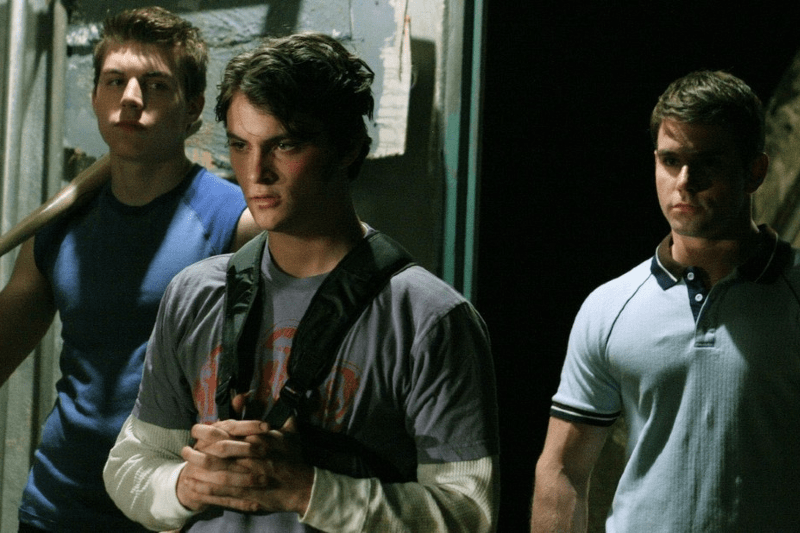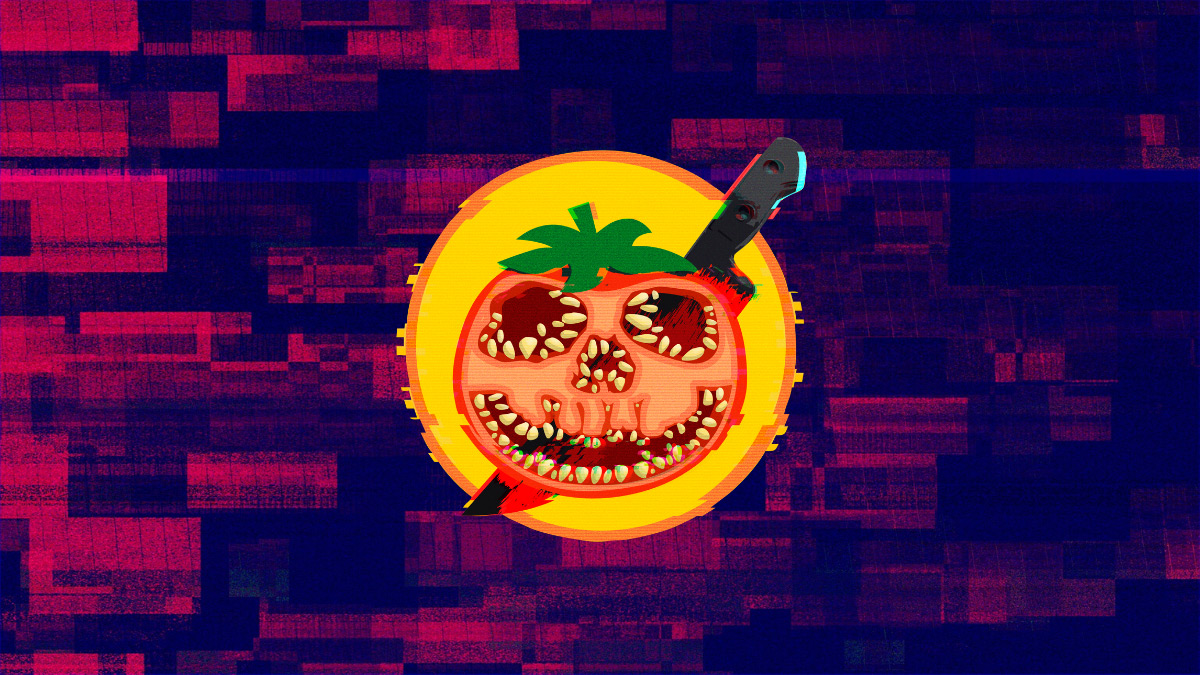Editorials
‘Deadgirl’ Damns Those Who Do Nothing
July 20th, 2024 | By Lauren Gallagher

2008 saw the release of several critically acclaimed horror films, from Lake Mungo, Eden Lake, Martyrs and Let the Right One In. But despite these successes, any of the years’ releases are not regarded quite so fondly and they have been forgotten to late 2000s history. One of these films is Deadgirl. Directed by Marcel Sarmiento and Gadi Harel, Deadgirl is a sexual exploitation horror that touches on ideas of sexual violence – and who deserves to be called out for their silence.
Become a Free Member on Patreon to Receive Our Weekly Newsletter
The plot is quite simple. Best friends Rickie (Shiloh Fernandez) and J.T. (Noah Segan) are skipping school and looking for somewhere secluded to drink some beers. They decide to break into the local abandoned psychiatric hospital. Classic. There, they pass time by making their way through its labyrinthine grounds, vandalising everything in sight. They run into an aggressive Dobermann who chases them deeper into the hospital, where they come across a door that seems to be rusted shut. Hoping it’s an exit, they break down the door, only to be faced with a horrifying scene.
The room seems to have been used for covert medical practices, and in the middle of it, lies the dead, naked body of a young woman (Jenny Spain). She is strapped to a table and has a plastic bag tied over her head. While they argue about what to do with her, they realise she is still breathing. Rickie is adamant they need to call the police, or at least unchain her before whoever has done this comes back. In a bizarre turn of events, J.T. decides that they should keep the girl as a sex slave and names her Deadgirl. J.T. attempts to convince Rickie to join him, but he refuses and leaves.
You would hope that after leaving, Rickie would tell the authorities about the abducted girl, but instead he simply goes home. Rickie grapples with the decision to help the girl throughout Deadgirl’s runtime, as J.T. invites more boys from school to take turns raping and torturing her. Things take a slight turn when J.T. attempts to kill the girl, but finds that after strangling her, breaking her neck, savagely beating her and repeatedly shooting her, she will not die. Deadgirl’s origins are never revealed, although the characters’ best guess is that she was a former patient at the hospital who was experimented on by doctors, then abandoned when the hospital closed down.
How exactly she became a zombie – or whatever she is – is not really important. The main objective of the film is clearly to disturb, and the script and its plot inconsistencies are overlooked in favour of its shock value. Many of the films’ criticisms are directed towards the graphic sexual violence and explicit nudity, which I think are absolutely valid, but many of these criticisms overlook the message that the film was trying to convey through this violence.
Deadgirl surprisingly gives some really interesting (though sometimes misguided) insight into female objectification, the consequences of the”’boys will be boys” mindset, the potential of rejection causing violence, and what can ultimately happen when misogynistic language goes unchallenged. Films like I Spit on Your Grave and The Last House on the Left are chief examples of the rape revenge subgenre, although they have not been without criticism. Shots lingering on women in vulnerable positions and female characters who have been given little agency are almost synonymous with the subgenre, but that doesn’t mean that the filmmakers intentions weren’t commendable, even if the final result is regrettable. For example, I Spit on your Grave was inspired by a real rape victim that the director stumbled upon after her attack. He drove the victim to the police, and was appalled by the officer’s dismissive attitude towards the victim, which inspired him to create a film where a victim could seek her own justice.
Deadgirl is unfortunately another example of a rape revenge film that may have had honourable intentions, but ultimately disregarded its original message for depicting depravity. Despite what the film says about misogyny, it only contains two female characters, Deadgirl and JoAnn (Candice Accola of The Vampire Diaries fame). They have very few or no lines, no personality, and no agency. They are only there for the men around them to project their fantasies onto and use for their own pleasure. Rickie says he loves JoAnn, but we only really see him have sexual fantasies about her. We never learn anything about her personality, interests, or why Rickie is so interested in her. Except for one notable line, when JoAnn has been abducted by the friend group. After consistently rejecting Rickie, he still confesses his love for her, to which she says “fucking grow up.”
A more recent film like 2022’s Fresh opens with a woman on a date with a man who tells her he misses when women were traditional, yet repeatedly tells her she has to pay for her own meal and makes comments about how he wished women put more effort into their looks. She is clearly offended and uninterested, yet he still tries to kiss her. When she politely rejects him, he tells her he wasn’t interested in her anyway and calls her a bitch. Fresh is gory and uncomfortable, but it’s also a joy to watch because every character is fully fleshed out and engaging, unlike those in Deadgirl. What Deadgirl says is not particularly groundbreaking, but the issues it does bring up are notable.
Rickie is a classic “nice guy.” He is mostly passive, he doesn’t actually save the girl but he doesn’t rape her either. This is the kind of guy that falls into a tricky category. Does he want to keep a woman prisoner and use her as a sex slave? No, he does not – at least not at first. Does he take any real steps in helping her escape or ensuring his friends face justice? No, he doesn’t do that either. The film tells the audience that just because you are not actively being the worst man in the world doesn’t necessarily mean you’re a good guy either.
If your friends catcall a girl in front of you, make misogynistic jokes, share intimate pictures with you, or do anything that you think would offend the women in your life, it is your responsibility to vocalise that. Just because you are not actively wandering the streets, looking for women to abduct, does not exclude you from the conversation or from accountability, Rickie! The characters in Deadgirl are heightened for dramatic purposes, but their real life counterparts do exist. Deadgirl is not actually so far from a possible reality. Just without the zombies.

